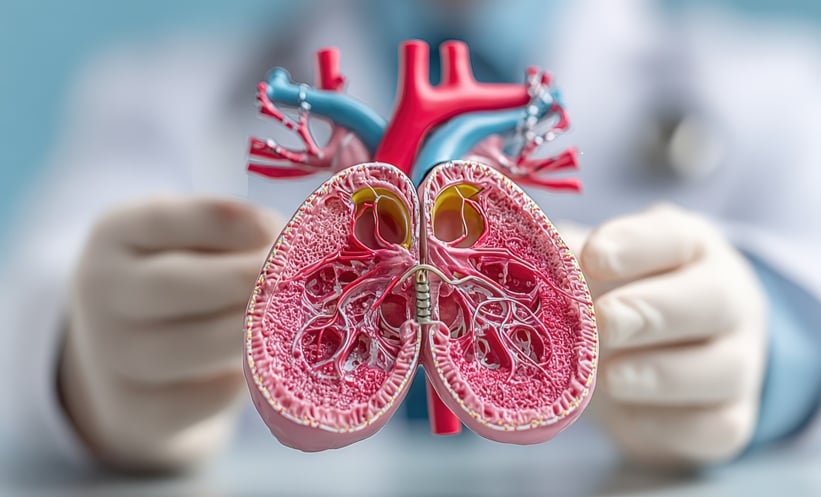TRANSCATHETER edge-to-edge repair of the tricuspid valve using the PASCAL system significantly reduces tricuspid regurgitation, improves symptoms, and enhances functional capacity and quality of life at 1 year.
Tricuspid regurgitation (TR) is a common valvular heart disease associated with substantial morbidity and mortality, particularly as severity increases. Patients with severe or greater TR often face limited therapeutic options, and traditional surgical approaches carry a high risk due to advanced age and comorbidities. Transcatheter tricuspid valve interventions have emerged as less invasive alternatives, with transcatheter edge-to-edge repair (T-TEER) offering targeted reduction of regurgitant flow and potential clinical benefit. The TriCLASP study was designed to evaluate the safety and efficacy of T-TEER in a real-world European post-market setting.
The prospective, single-arm TriCLASP study enrolled 300 patients with predominantly severe or greater TR. Participants had a mean age of 80.1 years, and 52.0% were female. The study assessed major adverse events (MAE), reduction in TR grade, and clinical, functional, and quality-of-life outcomes over 1 year. TR severity was reduced to moderate or less in 87.7% of patients, with a highly significant change (p<0.001). The composite MAE rate was 1.7% at 30 days and 12.7% at 1 year. Kaplan-Meier estimates demonstrated survival of 88.3±1.9% and freedom from heart failure hospitalisation of 83.2±2.3% at 1 year. Annualised heart failure hospitalisation rates decreased by 72.2% compared with the 12 months prior to the procedure (p<0.001). Functional and quality-of-life improvements were notable: 74.5% of patients were in New York Heart Association Class I or II, the six-minute walk distance increased by 29.4 metres, and the Kansas City Cardiomyopathy Questionnaire score rose by 8.3 points (p<0.001).
These results confirm that T-TEER with the PASCAL system is a safe and effective therapeutic option for patients with severe TR, providing meaningful reductions in regurgitation and low rates of mortality and adverse events. Clinically, the procedure offers a minimally invasive alternative to high-risk surgery, supporting symptom relief, improved functional capacity, and enhanced quality of life. Future research should examine longer-term durability, comparative outcomes with other tricuspid interventions, and optimal patient selection criteria. Incorporating T-TEER into routine management of severe TR could significantly improve patient outcomes and reduce hospitalisation burden in this high-risk population.
Reference
Baldus S et al., Behalf Of The TriCLASP Study Investigators O. Transcatheter valve repair of tricuspid regurgitation: 1-year outcomes from the TriCLASP study. EuroIntervention. 2025;21(15):e869-78








